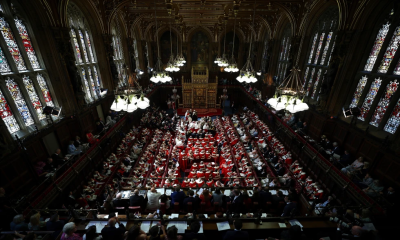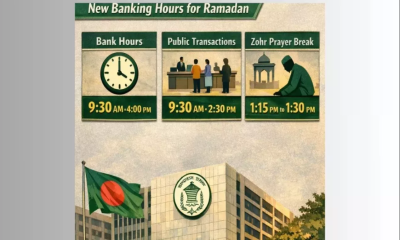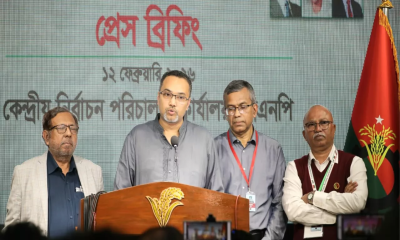The humanitarian crisis in Ukraine deepened Monday as Russian forces intensified their shelling and food, water, heat and medicine grew increasingly scarce, in what the country condemned as a medieval-style siege by Moscow to batter it into submission, AP reports.
A third round of talks between the two sides ended with a top Ukrainian official saying there had been minor, unspecified progress toward establishing safe corridors that would allow civilians to escape the fighting. Russia’s chief negotiator said he expects those corridors to start operating Tuesday.
But that remained to be seen, given the failure of previous attempts to lead civilians to safety amid the biggest ground war in Europe since World War II.
Well into the second week of the invasion, with Russian troops making significant advances in southern Ukraine but stalled in some other regions, a top U.S. official said multiple countries were discussing whether to provide the warplanes that Ukrainian President Volodymyr Zelenskyy has been pleading for.
Russian President Vladimir Putin’s forces continued to pummel cities with rockets, and fierce fighting raged in places. In the face of the bombardments, Zelenskky said Ukrainian forces were showing unprecedented courage.
“The problem is that for one soldier of Ukraine, we have 10 Russian soldiers, and for one Ukrainian tank, we have 50 Russian tanks,” Zelenskky told ABC News in an interview that aired Monday night. He noted that the gap in forces was diminishing and that even if Russian forces “come into all our cities,” they will be met with an insurgency.
In one of the most desperate cities, the encircled southern port of Mariupol, an estimated 200,000 people — nearly half the population of 430,000 — were hoping to flee, and Red Cross officials waited to hear when a corridor would be established.
The city is short on water, food and power, and cellphone networks are down. Stores have been looted as residents search for essential goods.
Police moved through the city, advising people to remain in shelters until they heard official messages broadcast over loudspeakers to evacuate.
Hospitals in Mariupol are facing severe shortages of antibiotics and painkillers, and doctors performed some emergency procedures without them.
The lack of phone service left anxious citizens approaching strangers to ask if they knew relatives living in other parts of the city and whether they were safe.
In the capital, Kyiv, soldiers and volunteers have built hundreds of checkpoints to protect the city of nearly 4 million, often using sandbags, stacked tires and spiked cables. Some barricades looked significant, with heavy concrete slabs and sandbags piled more than two stories high, while others appeared more haphazard, with hundreds of books used to weigh down stacks of tires.
“Every house, every street, every checkpoint, we will fight to the death if necessary,” said Mayor Vitali Klitschko.
In Kharkiv, Ukraine's second-largest city, with 1.4 million people, heavy shelling slammed into apartment buildings.
“I think it struck the fourth floor under us,” Dmitry Sedorenko said from his Kharkiv hospital bed. “Immediately, everything started burning and falling apart.” When the floor collapsed beneath him, he crawled out through the third story, past the bodies of some of his neighbors.
Klitschko reported that fierce battles continued in the Kyiv region, notably around Bucha, Hostomel, Vorzel and Irpin.
In the Irpin area, which has been cut off from electricity, water and heat for three days, witnesses saw at least three tanks and said Russian soldiers were seizing houses and cars.
A few miles away, in the small town of Horenka, where shelling reduced one area to ashes and shards of glass, rescuers and residents picked through the ruins as chickens pecked around them.
“What are they doing?” rescue worker Vasyl Oksak asked of the Russian attackers. “There were two little kids and two elderly people living here. Come in and see what they have done.”
In the south, Russian forces also continued their offensive in Mykolaiv, opening fire on the Black Sea shipbuilding center of a half-million people, according to Ukraine’s military. Rescuers said they were putting out fires caused by rocket attacks in residential areas.




-20260219110716.webp)
-20260219054530.webp)


-20260218060047.jpeg)
-20260216055149.webp)























